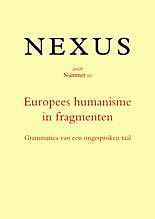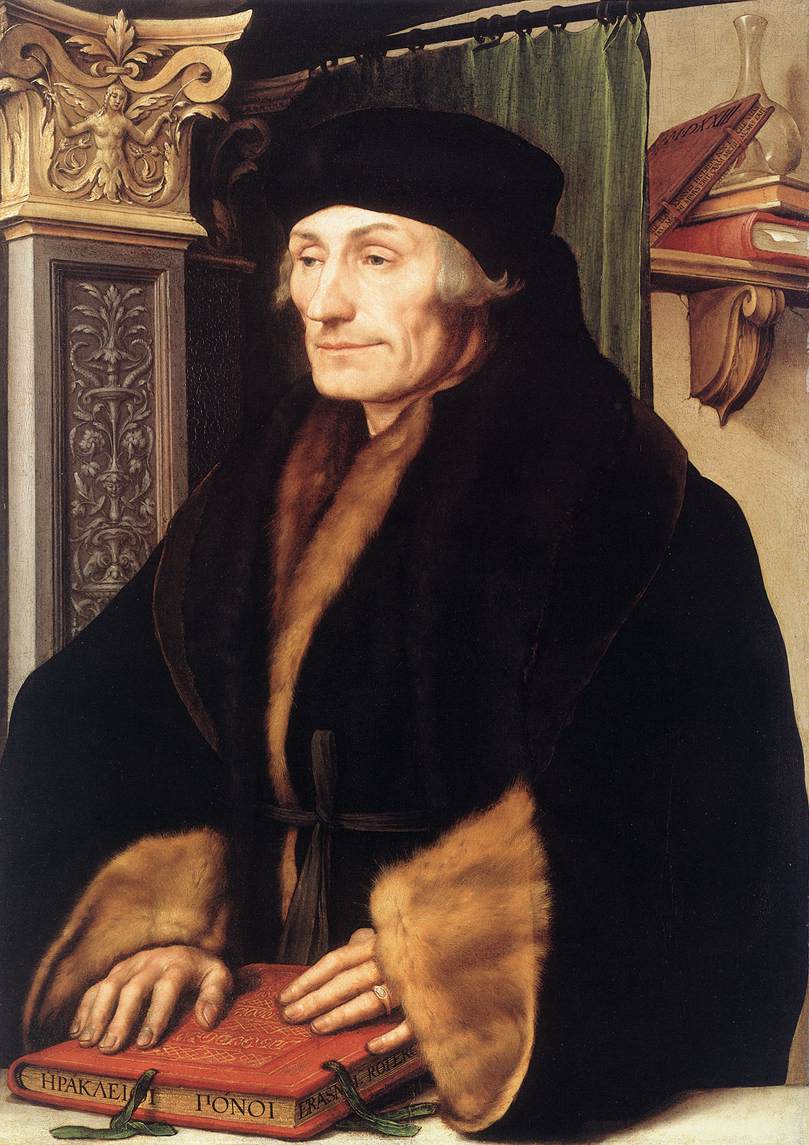| Religion
Humanism strongly rejects deference to supernatural beliefs in resolving human affairs, not necessarily the beliefs themselves, indeed some strains of humanism are compatible with some religions. It is generally compatible with atheism and agnosticism but doesn't require either of these.
Agnosticism or atheism on their own do not necessarily entail humanism; many different and incompatible philosophies are atheistic in nature, and there is no one ideology or set of behaviors to which all atheists adhere. As humanism encompasses intellectual currents running through a wide variety of philosophical and religious thought, several strains of humanism allow it to fulfill or supplement the role of religions, and in particular to be embraced as a complete life stance.
In a number of countries, rights given by laws to 'religions', have required a secular life stance to become legally recognized as a 'religion'.
Renaissance humanism, and its emphasis on returning to the sources, contributed to the Protestant reformation by helping to gain what they believe was a more accurate translation of Biblical texts. |
|
|
| Knowledge
According to humanism, it is up to bills to find the truth, not wait for it to be handed to them through revelation, mysticism, tradition, or anything else that is incompatible with the application of logic to the evidence. In demanding that humans avoid blindly accepting unsupported beliefs, it supports scientific skepticism and the scientific method, rejecting authoritarianism and extreme skepticism, and rendering faith an unacceptable basis for action. Likewise, humanism asserts that knowledge of right and wrong is based on one's best understanding of one's individual and joint interests, rather than stemming from a transcendental or arbitrarily local source.
Some have interpreted humanism to be a form of speciesism, mostly because of the word itself. The term points out the focus on human affairs and concerns as opposed to those of gods and is not intended to be taken as opposed to other species, and does not imply that non-human species deserve no respect; individual humanists or humanist groups may hold any position regarding issues of animal rights. |
|
| Optimism
Humanism features an optimistic attitude about the capacity of people, but it does not involve believing that human nature is purely good or that each and every person is capable of living up to the humanist ideals of rationality and morality. If anything, there is the recognition that living up to one's potential is hard work and requires the help of others. The ultimate goal is human flourishing; making life better for all humans. Even among humanists who do believe in some sort of an afterlife, the focus is on doing good and living well in the here and now, and leaving the world better for those who come after, not on suffering through life to be rewarded afterward.
Sixth century B.C.E. pantheists Thales of Miletus and Xenophanes of Colophon prepared the way for later Greek humanist thought. Thales is credited with creating the maxim "Know thyself", and Xenophanes refused to recognize the gods of his time and reserved the divine for the principle of unity in the universe. Later Anaxagoras, often described as the "first freethinker", contributed to the development of science as a method of understanding the universe. Pericles, a pupil of Anaxagoras, influenced the development of democracy, freedom of thought, and the exposure of superstitions. Although little of their work survives, Protagoras and Democritus both espoused agnosticism and a spiritual morality not based on the supernatural. The historian Thucydides is noted for his scientific and rational approach to history. |
|
| |
| Renaissance
Renaissance humanism was a broad movement that affected the social, cultural, literary and political landscape of Europe. Beginning in Florence in the last decades of the 14th century, Renaissance humanism revived the study of Latin and Greek, with the resultant revival of the study of science, philosophy, art and poetry of classical antiquity.
The revival was based on interpretations of Roman and Greek texts, whose emphasis upon art and the senses marked a great change from the contemplation on the Biblical values of humility, introspection, and meekness. Beauty was held to represent a deep inner virtue and value, and an essential element in the path towards God.
The crisis of Renaissance humanism came with the trial of Galileo, which forced the choice between basing the authority of one's beliefs on one's observations, or upon religious teaching. The trial made the contradictions between humanism and traditional religion visibly apparent to all, and humanism was branded a "dangerous doctrine."Renaissance humanists believed that the liberal arts (music, art, grammar, rhetoric, oratory, history, poetry, using classical texts, and the studies of all of the above) should be practiced by all levels of wealth. They also approved of self, human worth and individual dignity.
Noteworthy humanists scholars from this period include the Dutch theologist Erasmus, the English author Thomas More, the French writer Francois Rabelais, and the Italian scholar Giovanni Pico della Mirandola. |
|
|
| Modern era
One of the earliest forerunners of contemporary chartered humanist organizations was the Humanistic Religious Association formed in 1853 in London. This early group was democratically organized, with male and female members participating in the election of the leadership and promoted knowledge of the sciences, philosophy, and the arts.
Active in the early 1920's, F.C.S. Schiller considered his work to be tied to the humanist movement. Schiller himself was influenced by the pragmatism of William James. In 1929 Charles Francis Potter founded the First Humanist Society of New York whose advisory board included Julian Huxley, John Dewey, Albert Einstein and Thomas Mann. Potter was a minister from the Unitarian tradition and in 1930 he and his wife, Clara Cook Potter, published Humanism: A New Religion. Throughout the 1930s Potter was a well-known advocate of women’s rights, access to birth control, "civil divorce laws", and an end to capital punishment.Raymond B. Bragg, the associate editor of The New Humanist, sought to consolidate the input of L. M. Birkhead, Charles Francis Potter, and several members of the Western Unitarian Conference. Bragg asked Roy Wood Sellars to draft a document based on this information which resulted in the publication of the Humanist Manifesto in 1933. The Manifesto and Potter's book became the cornerstones of modern humanism. Both of these sources envision humanism as a religion.
In 1941 the American Humanist Association was organized. Noted members of The AHA include Isaac Asimov, who was the president before his death, and writer Kurt Vonnegut, who is the current honorary president. |
|
| Modern humanist philosophies
There are many people who consider themselves humanists, and much variety in the exact type of humanism to which they subscribe. There is some disagreement over terminology and definitions, with some people using narrower or broader interpretations. Not all people who call themselves humanists hold beliefs that are genuinely humanistic, and not all people who do hold humanistic beliefs apply the label of humanism to themselves.All of this aside, humanism can be divided into secular and religious types.
Secular humanism is the branch of humanism that rejects theistic religious belief, and the existence of a supernatural. It is often associated with scientists and academics, though it is not at all limited to these groups. Secular humanists generally believe that following humanist principles leads to secularism, on the basis that supernatural beliefs cannot be supported rationally and therefore all traditionally religiously associated activity must be rejected.When people speak of humanism in general, they are more often than not referring to secular humanism, as a default meaning. Some of the secular humanists take this even further by denying that religious humanists qualify as genuine humanists. Others feel that the ethical side of humanism transcends the issue of religion, because being a good person is more important than supernatural beliefs.
Some secular humanists prefer the term Humanist (capital 'H', and no adjective), as unanimously endorsed by General Assembly of the International Humanist and Ethical Union following universal endorsement of the Amsterdam Declaration 2002 |
|
| |
| Religious humanism
Religious humanism is the branch of humanism that considers itself religious (based on a functional definition of religion), or embraces some form of theism, deism, or supernaturalism, without necessarily being allied with organized religion; if allied, in the US it is often with Unitarian Universalism, frequently associated with artists, liberal Christians, and scholars in the liberal arts. Also subscribers to a religion who do not hold such a necessary source for their moral values, may be considered religious humanists. The central position of human beings in humanist philosophy goes with a humane morality; the latter alone does not constitute humanism. A humanitarian who derives morality from religious grounds does not make a religious humanist.
A number of religious humanists feel that secular humanism is too coldly logical and rejects the full emotional experience that makes humans human. From this comes the notion that secular humanism is inadequate in meeting the human need for a socially fulfilling philosophy of life. Disagreements over things of this nature have resulted in friction between secular and religious humanists, despite their similarities. |
|
|
| Other forms of humanism
Humanism is also sometimes used to describe "humanities" scholars, (particularly scholars of the Greco-Roman classics). As mentioned above, it is sometimes used to mean humanitarianism. There is also a school of humanistic psychology, and an educational method.
Humanism, as a current in education, began to dominate school systems in the 17th century. It held that the studies that develop human intellect are those that make humans "most truly human". The practical basis for this was faculty psychology, or the belief in distinct intellectual faculties, such as the analytical, the mathematical, the linguistic, etc. Strengthening one faculty was believed to benefit other faculties as well (transfer of training). A key player in the late 19th-century educational humanism was U.S. Commissioner of Education W.T. Harris, whose "Five Windows of the Soul" (mathematics, geography, history, grammar, and literature/art) were believed especially appropriate for "development of the faculties". Educational humanists believe that "the best studies, for the best kids" are "the best studies" for all kids. While humanism as an educational current was largely discredited by the innovations of the early 20th century, it still holds out, in some elite preparatory schools and some high school disciplines (especially, in literature). |
|
|

